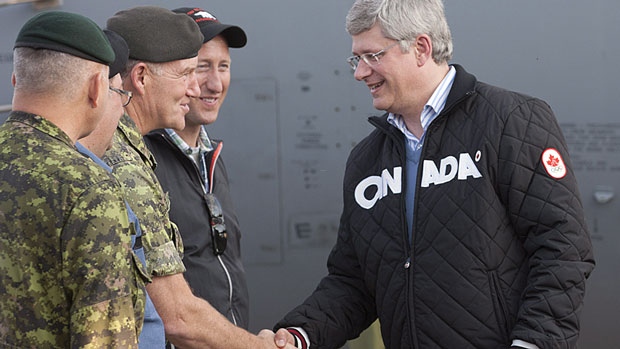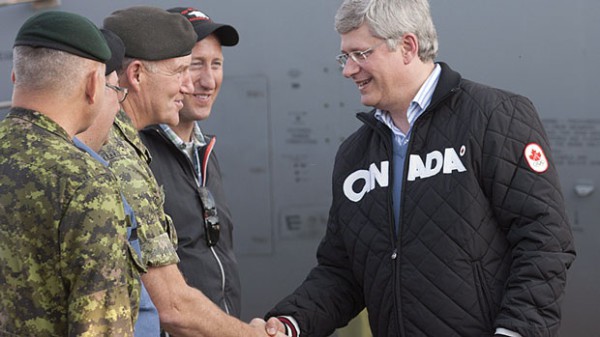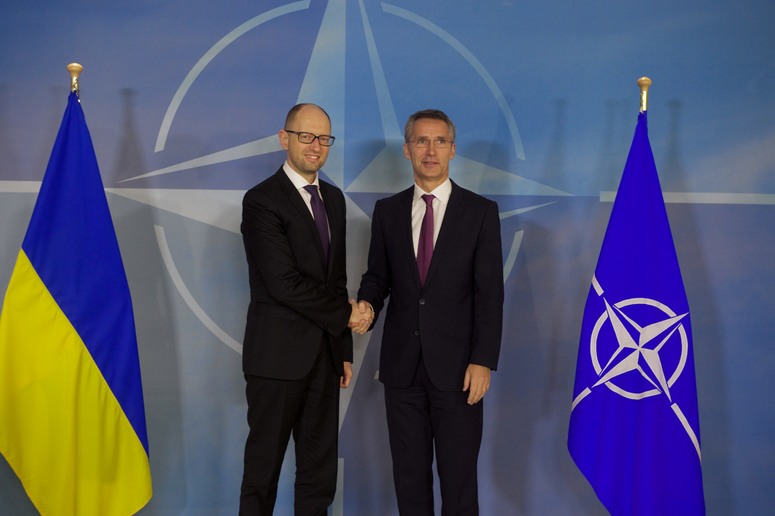The federal government, the Armed Forces, and the media are often quoted as saying that certain Canadian missions abroad have or had the support of the public. For example, most articles on Canada’s mission in Afghanistan make reference to its “widespread public support”, while others on the country’s intervention in Libya mention the public’s reluctance to send troops. While these assertions may be true, in Canada, war does not actually have to have the support of the public.
In the Canadian Parliamentary system, constituents express indirect support for government actions by electing Members of Parliament to represent their views. Any initiative that is passed in Parliament could then reasonably be described as having the public’s support. While a vote in Parliament is the normal procedure for issues like the budget, regulatory measures, and taxation, the decision to go to war is in fact a prerogative power. It is technically entirely out of Parliament’s control.
Prerogative powers are powers delegated to the Governor General by the Crown. The Governor General exercises these powers on the advice of the Prime Minister. However, because the Governor General lacks democratic legitimacy (that is, she or he is not elected by the Canadian public), the Prime Minister solely holds prerogative powers in practice. These powers are of vital importance to the Canadian constitutional framework, as they include responsibilities such as the appointment of cabinet ministers and ambassadors, the summoning, proroguing and dissolution of Parliament, the signing of treaties, and the declaration of war.
Canadian political scientist Philippe Lagassé writes that, since 2006, the Conservative government has made a point of consulting MPs on military deployment decisions and there is now an expectation that members will always get to voice their opinions on such matters. He argues that any government that failed to consult the House when ordering the military to a significant mission abroad would be roundly and rightly criticized. However, this is not to say that the House of Commons controls the government’s authority to send armed forces into combat. Lagassé states that the House’s role is “merely advisory; MPs can express an opinion, but Parliament does not decide when Canada goes to war.”
Many argue that there are advantages to the executive having prerogative powers. For example, the prerogative power to declare war allows governments to reserve the right to deploy military forces during crises or emergencies or at times when Parliament is not sitting. Regardless of such advantages, however, these powers certainly raise questions regarding unrestrained executive authority. While Lagassé writes that any Prime Minister who neglects to consult the House on military deployment would face massive public backlash, perhaps leading to a non-confidence vote, one has to wonder to what extent public opinion is a sufficient check on the executive’s ability to declare war without consulting Parliament. When it comes to matters as serious as war, Canadians could reasonably be concerned about the fact that the Prime Minister retains this prerogative power, regardless of whether or not he actually uses it.




